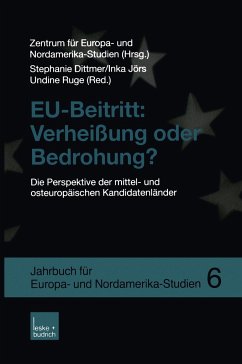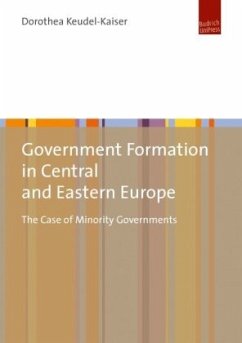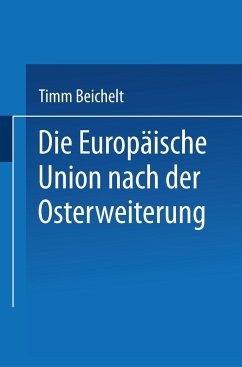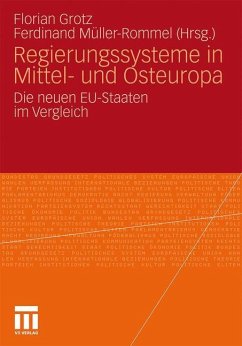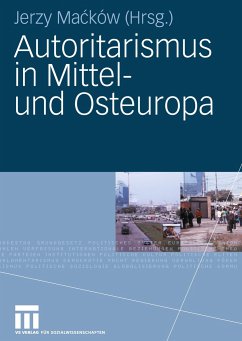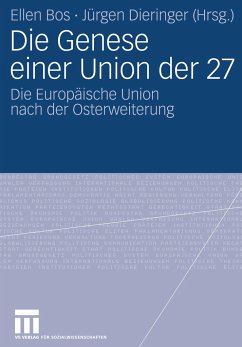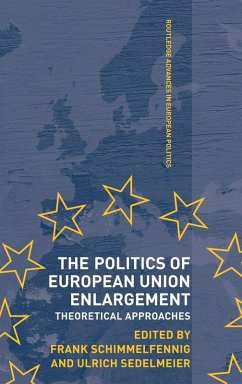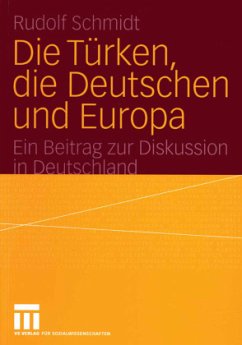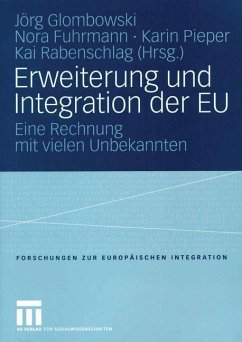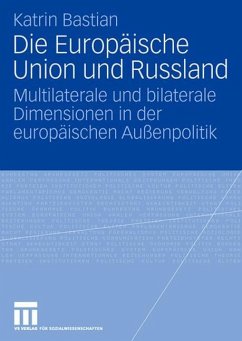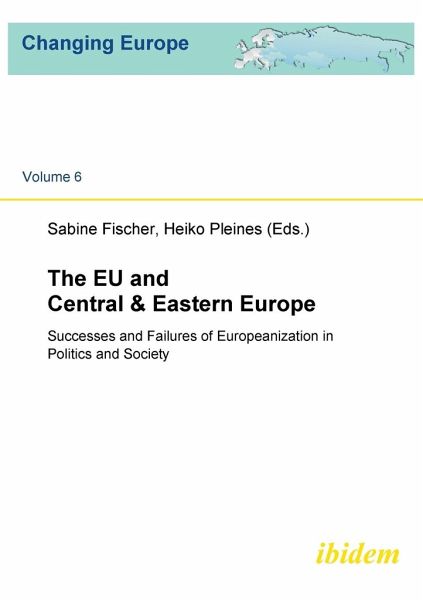
The EU and Central & Eastern Europe. Successes and Failures of Europeanization in Politics and Society
Versandkostenfrei!
Versandfertig in 6-10 Tagen
24,90 €
inkl. MwSt.

PAYBACK Punkte
0 °P sammeln!
The changes in post-socialist Central and Eastern European countries have been affected by external influences more than any preceding wave of democratization. The contributions in this volume reflect the wide variety of Europeanization processes taking place in Central and Eastern Europe. They not only serve to illustrate the significant differences among post-socialist transformations, but also highlight the variety of theoretical concepts and methodological approaches at our disposal to research different aspects of Europeanization in the broader context of globalization and identity change...
The changes in post-socialist Central and Eastern European countries have been affected by external influences more than any preceding wave of democratization. The contributions in this volume reflect the wide variety of Europeanization processes taking place in Central and Eastern Europe. They not only serve to illustrate the significant differences among post-socialist transformations, but also highlight the variety of theoretical concepts and methodological approaches at our disposal to research different aspects of Europeanization in the broader context of globalization and identity changes.
The first part of the book deals with Europeanization from above , i.e. with the European Commission s deliberate promotion of specific rules and related policies during the integration process. In the second part of the book, the perspective shifts to Europeanization as a process of changing perceptions, values and identities. The third and final part of this book goes beyond the Europeanization approach. It places Europeanization in the context of the various globalization pressures on civil society.
This book presents some of the best papers of the Changing Europe Summer School on Central and Eastern Europe in a globalized world , held at the University of Bremen, Germany in July/August 2008.
The first part of the book deals with Europeanization from above , i.e. with the European Commission s deliberate promotion of specific rules and related policies during the integration process. In the second part of the book, the perspective shifts to Europeanization as a process of changing perceptions, values and identities. The third and final part of this book goes beyond the Europeanization approach. It places Europeanization in the context of the various globalization pressures on civil society.
This book presents some of the best papers of the Changing Europe Summer School on Central and Eastern Europe in a globalized world , held at the University of Bremen, Germany in July/August 2008.



